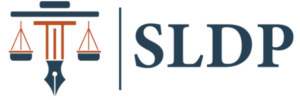This Tool addresses the issue of HRDD in humanitarian operations in Northwest Syria. It brings together international law and humanitarian expertise to provide an in-depth analysis that aims to support the operations of humanitarian NGOs in Northwest Syria.
The Tool consists primarily of three sections: 1) HRDD in Syria, including its importance and its components; 2) the governing international legal frameworks; and 3) the HRDD Tool. The legal section provides an overview of the international legal frameworks, including international humanitarian law and international human rights law, that govern key human rights issues that may arise in humanitarian operations in Northwest Syria, mainly the territories outside the control of the Syrian government. It also addresses the legal responsibility of humanitarian NGOs to respect international law and human rights.
In order to develop an HRDD Tool that addresses the unique situation in Northwest Syria, the desk research phase of the project mapped out the available literature on the impact of humanitarian operations on human rights in the region in the past decade. Available work focusses primarily on the issue of HLP rights violations and the protection from sexual exploitation and abuse and sexual harassment (PSEAH) in humanitarian settings. The issue of HLP rights has become increasingly a point of focus given the mass displacement into and out of the region during the years of the conflict. Tools such as the ‘Housing, Land and Property Rights in Shelter: Due Diligence Guidelines (Shelter Cluster)’ were developed to encourage humanitarian NGOs to avoid infringing on HLP rights in their projects.5
However, in order to provide a more comprehensive HRDD Tool, the literature review was supplemented with six interviews with leading Syrian NGOs in the Northwest who also have a wide expertise in the field. The interviews helped to identify the parameters of a sample to study and on which to build the tool. The sample includes examining a number of possible human rights risks including: HLP rights, PSEAH, rights linked to harm to the environment, health and education related rights, children rights, and issues related to discrimination and community engagement. These issues were investigated in five sectors: Shelter, Protection, Healthcare, Education, and WASH.
The data collection phase relied on the results of a questionnaire addressing the issues previously identified in the mentioned five sectors. The questionnaire was developed by an expert of humanitarian operations in Northwest Syria and received replies from 10 NGOs working in northwest Syria. The results formed the base of the HRDD Tool and the supporting matrix. The chosen sample covers a wide range of relevant issues, but it remains limited and in need of further feedback from humanitarians to address any remaining gaps.
The survey covered various aspects of human rights considerations in humanitarian work, including organizational policies, accountability mechanisms, inclusion practices, and sector-specific concerns. It remains limited by its small size: four INGOs and six LNGOs. The surveyed organisations are among the largest operating in northwest Syria and they cover the previously mentioned sectors of humanitarian operations. Self-reported data may be subject to bias.
The questionnaire aimed to better understand each organization’s policies and procedures, the level of accountability to affected populations, and level of inclusion and accessibility. It also targeted project design and implementation, with a focus on environmental considerations. Monitoring and evaluation processes were also explored, in addition to questions that were sector specific. Additionally, the outcome of a validation workshop held in November 2024, contributed to the HRDD Tool’s further development and refinement.The workshop served to 1) ensure a common understanding of the international legal framework applicable in Northwest Syria; 2) discuss key human rights issues that humanitarian organizations face while planning and implementing projects in the region; 3) identify existing mitigation strategies; and 4) present, test, and collect feedback on the HRDD Tool. A total of 21 representatives from 15 humanitarian organizations6 operating in Northwest Syria participated in the workshop. The majority of participants (13 out of 15) reported being active in the protection sector, while eight organizations are involved in healthcare, eight in education, eight in shelter, and six in WASH. In addition, the validation workshop highlighted the importance of the food security sector, which is added to the matrix next to the already mentioned 5 sectors.
5. Global Shelter Cluster, Housing, Land and Property Rights in Shelter: Due Diligence Guideline (2024) available at <https://sheltercluster.s3.eu-central-1.amazonaws.com/public/docs/hlp_xb_turkey_due_diligence_guidelines_final.pdf>
6. Participating organizations are: Bahar Organization, Basmeh & Zeitooneh, Ghiras Al-Nahda, Ihsan Relief and Development, MedGlobal, Molham Volunteering Team, Muzun for Humanitarian & Development, Shafak Organisation, Sened Organization, Syrian Expatriates Medical Association (SEMA), The UN Refugee Agency (UNHCR), The Union of Medical Care and Relief Organizations (UOSSM), The White Helmets, Violet Organization, and Women Now for Development.




